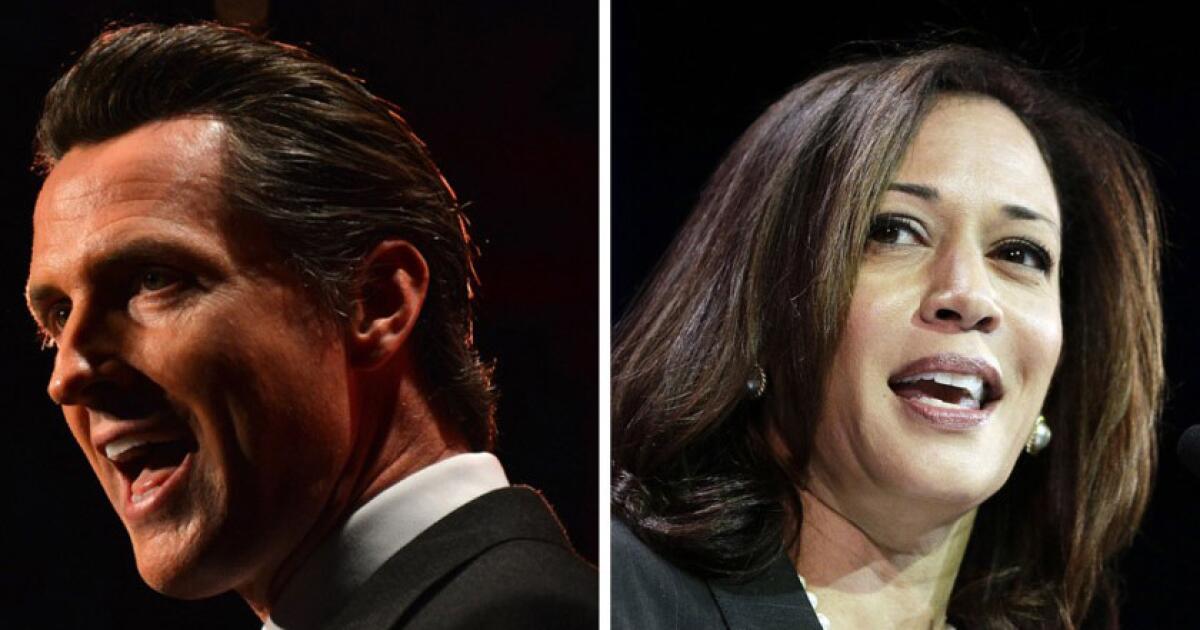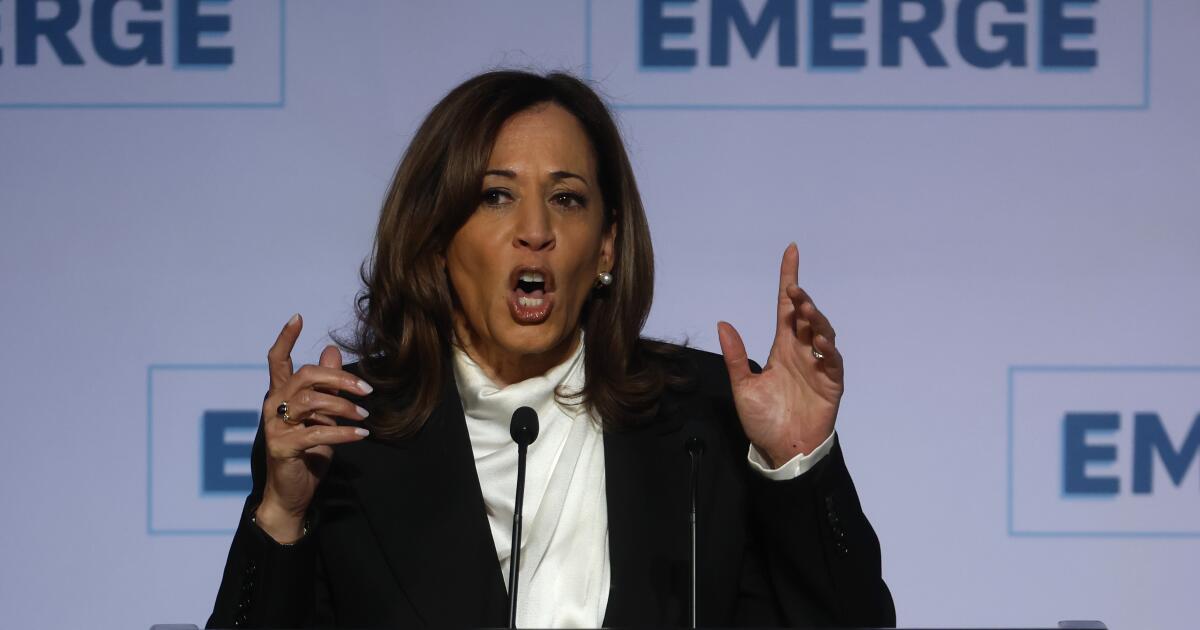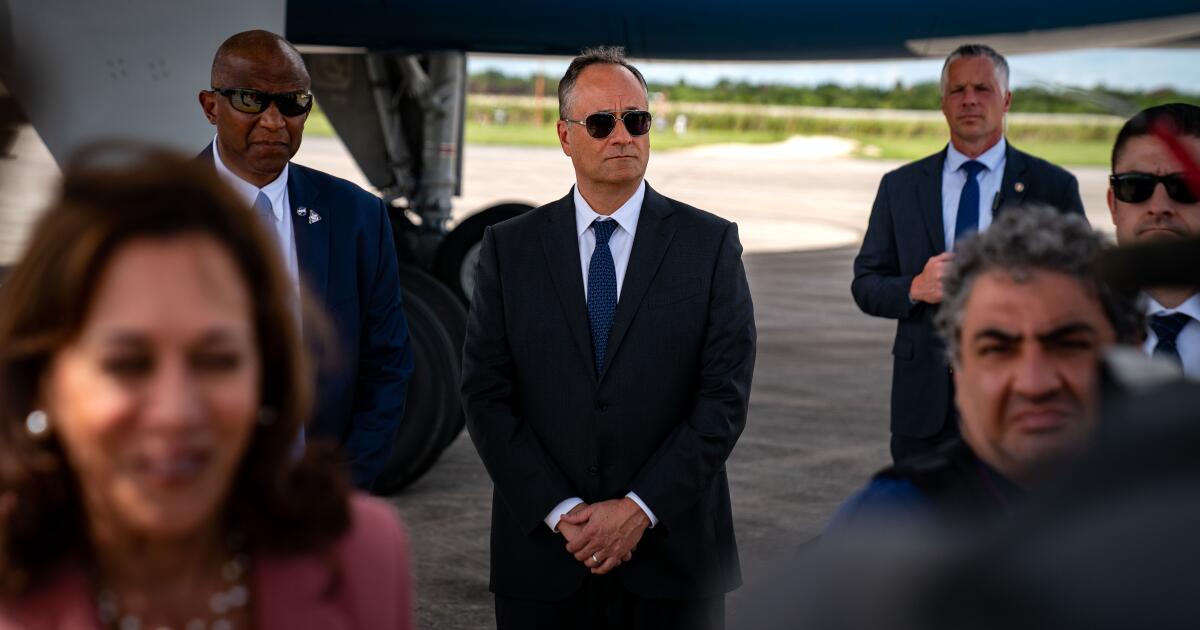Kamala Harris’ campaign memoir burns some Democratic bridges
Democrats, despite their hypersensitive, bleeding-heart reputation, can be harsh. Ruthless, even.
When it comes to picking their presidential nominee, it’s often one and done. Walter Mondale, Michael Dukakis, Al Gore and John Kerry were embraced and then, after leading their party to disappointing defeat, cast off like so many wads of wet tissue.
Compare that with Republicans, who not only believe in second chances but, more often than not, seem to prefer their presidential candidates recycled. Over the last half century, all but a few of the GOP’s nominees have had at least one failed White House bid on their resume.
The roster of retreads includes the current occupant of the Oval Office, who is only the second president in U.S. history to regain the perch after losing it four years prior.
Why the difference? It would take a psychologist or geneticist to determine if there’s something in the minds or molecular makeup of party faithful, which could explain their varied treatment of those humbled and vanquished.
Regardless, it suggests the blowback facing Kamala Harris and the campaign diary she published last week is happening right on cue.
And it doesn’t portend well for another try at the White House in 2028, should the former vice president and U.S. senator from California pursue that path.
The criticism has come in assorted flavors.
Joe Biden loyalists — many of whom were never great fans of Harris — have bristled at her relatively mild criticisms of the obviously aged and physically declining president. (She leaves it to her husband, former Second Gentleman Doug Emhoff, to vent about the “impossible, s— jobs” Harris was given and, in spite of that, the failure of the president and first lady to defend Harris during her low points.)
The notable lack of self-blame has rankled other Democrats. Aside from some couldas and shouldas, Harris largely ascribes her defeat to insufficient time to make her case to voters — just 107 days, the title of her book — which hardly sits well with those who feel Harris squandered the time she did have.
More generally, some Democrats fault the former vice president for resurfacing, period, rather than slinking off and disappearing forever into some deep, dark hole. It’s a familiar gripe each time the party struggles to move past a presidential defeat; Hillary Clinton faced a similar backlash when she published her inside account after losing to Donald Trump in 2016.
That critique assumes great masses of voters devour campaign memoirs with the same voracious appetite as those who surrender their Sundays to the Beltway chat shows, or mainline political news like a continuous IV drip.
They do not.
Let the record show Democrats won the White House in 2020 even though Clinton bobbed back up in 2017 and, for a short while, thwarted the party’s fervent desire to “turn the page.”
But there are those avid consumers of campaigns and elections, and for the political fiends among us Harris offers plenty of fizz, much of it involving her party peers and prospective 2028 rivals.
Pete Buttigieg, the meteoric star of the 2020 campaign, was her heartfelt choice for vice president, but Harris said she feared the combination of a Black woman and gay running mate would exceed the load-bearing capacity of the electorate. (News to me, Buttigieg said after Harris revealed her thinking, and an underestimation of the American people.)
Pennsylvania Gov. Josh Shapiro, the runner-up to Harris’ ultimate vice presidential pick, Minnesota Gov. Tim Walz, comes across as unseemly salivating and greedily lusting after the job. (He fired back by suggesting Harris has some splainin’ to do about what she knew of Biden’s infirmities and when she knew it.)
Harris implies Govs. JB Pritzker and Gretchen Whitmer of Illinois and Michigan, respectively, were insufficiently gung-ho after Biden stepped aside and she became the Democratic nominee-in-waiting.
But for California readers, the most toothsome morsel involves Harris’ longtime frenemy, Gov. Gavin Newsom.
The two, who rose to political power in the early 2000s on parallel tracks in San Francisco, have long had a complicated relationship, mixing mutual aid with jealousy and jostling.
In her book, Harris recounts the hours after Biden’s sudden withdrawal, when she began telephoning top Democrats around the country to lock in their support. In contrast to the enthusiasm many displayed, Newsom responded tersely with a text message: “Hiking. Will call back.”
He never did, Harris noted, pointedly, though Newsom did issue a full-throated endorsement within hours, which the former vice president failed to mention.
It’s small-bore stuff. But the fact Harris chose to include that anecdote speaks to the tetchiness underlying the warmth and fuzziness that California’s two most prominent Democrats put on public display.
Will the two face off in 2028?
Riding the promotional circuit, Harris has repeatedly sidestepped the inevitable questions about another presidential bid.
“That’s not my focus right now,” she told Rachel Maddow, in a standard-issue non-denial denial. For his part, Newsom is obviously running, though he won’t say so.
There would be something operatic, or at least soap-operatic, about the two longtime competitors openly vying for the country’s ultimate political prize — though it’s hard to see Democrats, with their persistent hunger for novelty, turning to Harris or her left-coast political doppelganger as their savior.
Meantime, the two are back on parallel tracks, though seemingly headed in opposite directions.
While Newsom is looking to build Democratic bridges, Harris is burning hers down.


